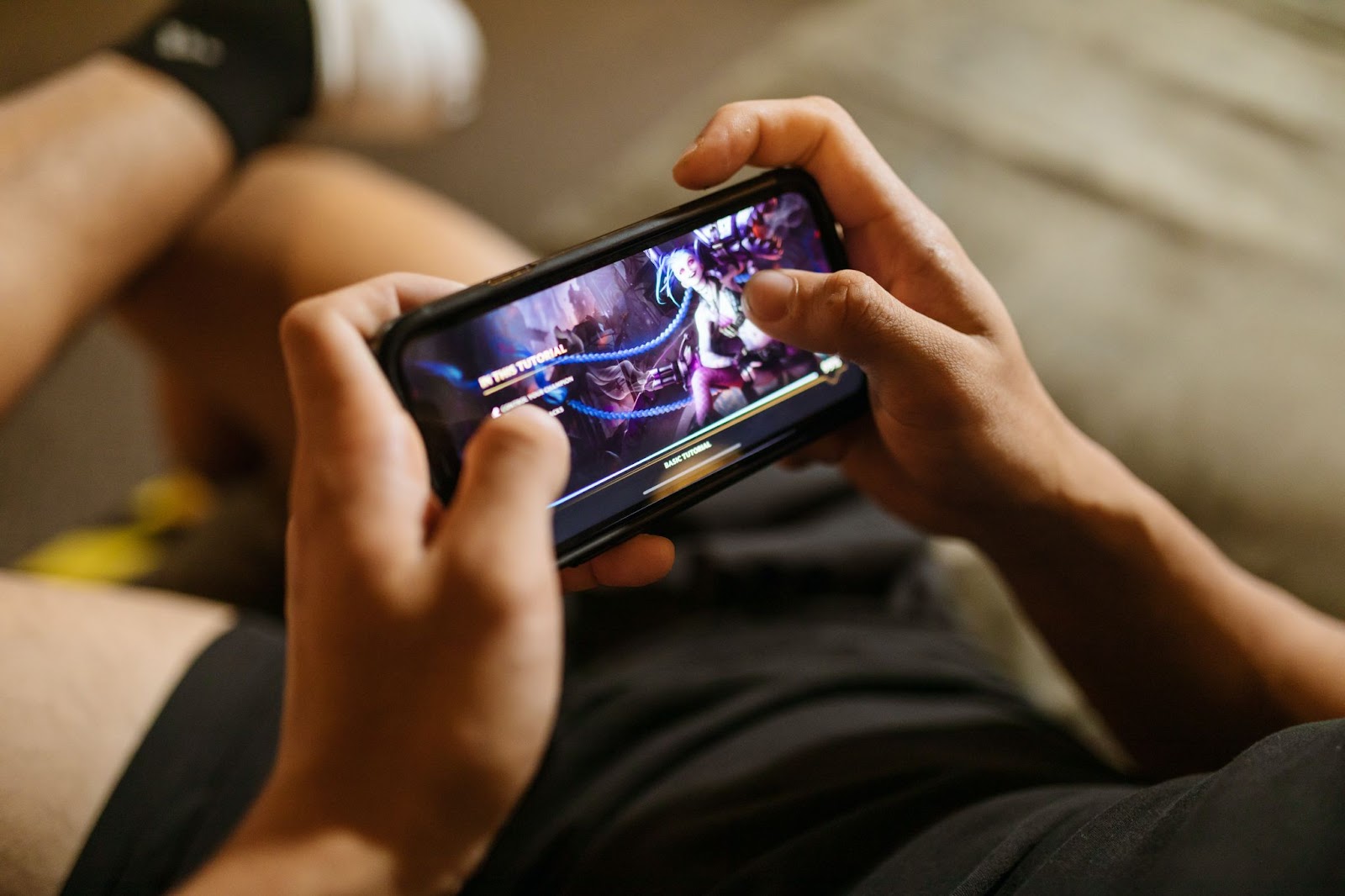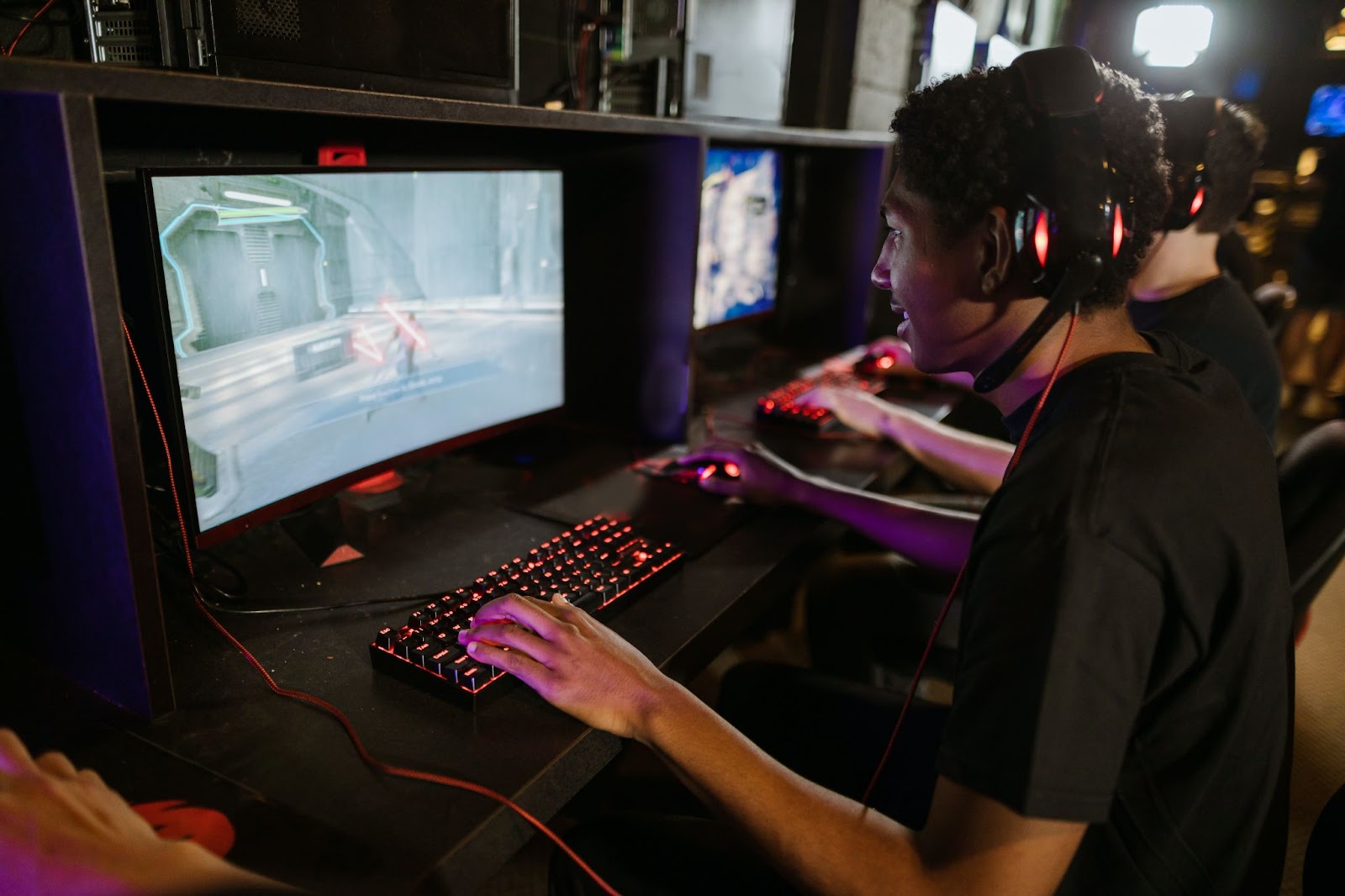
As the esports industry is growing at an unprecedented rate, the idea of making it part of the Olympics has become a popular discussion topic. It is no secret that the Olympics have become an international phenomenon, and that the potential benefits of making esports part of them are immense. However, there are also many challenges that come with making esports part of the Olympics, which need to be considered before such a decision is made.
In this article, we will be looking at the potential pros and cons of making esports part of the Olympics.
Are Esports Part of The Olympics
Esports — also known as electronic sports, competitive gaming, or professional gaming — is a form of competition using video games. Esports competitors play intense video games such as League of Legends or Fortnite with the intention of competing and winning at the highest levels. They usually practice for long hours and refine their approaches to the game for maximum effectiveness. Esports involves strategic planning, quick thinking, and focused concentration, making it distinct from regular video gaming. In esports competitions, teams of players face off against other teams in a tournament format much like traditional sports such as football or basketball. The most successful teams are chosen to advance each round until only one champion remains. Its popularity has grown quickly in recent years; millions of gamers across the globe strive to compete at the top levels around the world while watching major tournaments streamed online. Esports has become a highly lucrative business venture and is now seen by many organizations as a viable alternative to traditional sporting events as it has a huge potential audience on online platforms such as YouTube and Twitch. As more people get involved and become invested in esports, industry experts have proposed that it could eventually become an Olympic event alongside conventional sports competitions such as gymnastics and swimming. While this prospect is exciting to some athletes, there are many challenges that must first be addressed before esports can reach this goal.
Benefits of Esports
Touted as an even playing field, many view esports to be an ideal addition to the Olympics organization. Esports encompasses a wide range of computer, video and other digital games that span from individual to online multiplayer styles. These games are played in professional tournaments and provide Olympic-level challenges for competitors and viewers alike. As this branch of entertainment grows in popularity, there is increasing consideration for integrating them into larger, more traditional sporting events such as the Olympics. The potential benefits of introducing these titles into international competition are largely based on the opportunities they present involving physical education and health promotion. Generally, esports do not require extensive physical activity like traditional sports, however many tend to develop mental acuity — helping participants form strong problem solving skills that may help alleviate certain stressors while helping them become more alert and attentive to detail. This inclusiveness also aids in building social relationships with peers who share similar interests — bolstering confidence levels which can have a trickle down effect into other areas of life beyond one’s digital sphere. Finally, esports competitions promote cooperation by creating a level playing field for competitors regardless of age or physical capabilities; creating competitive personalities where men, women and children of all ages are able to partake without feeling intimidated by their opponents’ experience or fitness level differences.
Challenges of Making Esports Part of The Olympics
The popularity of esports continues to rise, and many people are wondering if it will be included in the Olympic Games. However, there are many obstacles that must be overcome before esports is accepted as a part of the Olympics. These challenges include everything from ensuring fair play and regulating tournaments, to convincing Olympic committees that esports is a legitimate sport. Let’s take a closer look at the challenges of making esports part of the Olympics.
Lack of Recognition
The recognition gap between traditional sports and esports remains a major challenge when considering the inclusion of esports in the Olympics. While traditional sports have had the opportunity to develop proper regulations, branching out into grassroots programs and governing bodies that abide by the Olympic standards, esports has yet to gain this level of legitimacy in many parts of the world. This has led to uncertainty as to how to quite approach it in terms of official Olympic representation.
In order for esports events and competitive gaming tournaments to be accepted for consideration into the Olympics, it must meet several criteria, though few nations have guidelines in place like those established for traditional sports. The lack of unified regulations creates an environment where groups are hesitant or unwilling to commit their resources until there is a well-defined set of standards that all parties must adhere to. It also makes it difficult for athletes who wish to compete at a high level since they most likely don’t have access to resources which would provide them with necessary support. One of the most significant challenges is setting up an Olympic version of regulations. Without this process being standardized similar regulations found within professional organizations like the International Esports Federation (IeSF), adapting these rules into standard sets may prove too difficult at this time given its diverse range of genres and elements included. This regulatory challenge presents itself as something that needs addressing prior any further progress can be made towards including 100 percent legitimate participants at a fully recognized events such as an Olympic Games.
Lack of Regulation
One of the major challenges to making esports part of the Olympics is the lack of a unified body that regulates competitive gaming around the world. The International e-Sports Federation (IeSF) has attempted to put together an organization to govern sporting events on an international scale, but it is challenging due to the variety of game genres and titles used in competitions. As esports continues to gain both in popularity and recognition as a legitimate sport, it is likely that an international body can be formed or existing organizations like the IeSF will provide oversight and regulation. Another issue with creating an overseer for international competitions is the need for uniform rules and regulations in each country throughout which gaming events are hosted. This is especially important for countries like South Korea which has minimal laws about gaming tournaments or leagues. Without clear regulations, nations and locales may find themselves clashing over issues such as content restrictions, eligibility requirements, scheduling discrepancies, and more. Furthermore, depending on game selection, medals may need to be split between team-based competitions as opposed to being awarded only to individuals who excel at particular titles or genres. For example, if two teams compete at professional Call of Duty while another pair competes at Overwatch — each match requires separate scoring categories and ruleset considerations in order for medal placements (gold/silver/bronze) to be fairly distributed among all players involved. Additionally some organizations require players sign anti-Doping Agreements which raise questions about medications containing supplements found in both modern esports organizations as well as traditional sports leagues worldwide.

Difficulty in Establishing an International Standard
While the growth of esports has been unquestionable, and reaching out to the Olympics is thought to be beneficial for both sides, there are still some challenges that must be faced. One of these is the difficulty in establishing an international standard for competitive gaming.
Professional gamers from all over the world compete in various tournaments and leagues, each with its own set of rules and regulations. The technology, platforms and formats vary widely from region to region, creating a level playing field for all competitors across different competitive gaming events. Therefore, developing an international regulation that covers all possible areas of competitive gaming can prove to be difficult due to these discrepancies. Other than differing gaming technologies and formats, language barriers can also be a challenge when it comes to setting up such an international standard. Professional gamers may not speak the same language or even understand the same game mechanics if they come from different parts of the world. This obstacle could serve as a hindrance when attempting to reach agreement between countries on how competitive gaming should be regulated going forward into becoming part of the competitions under Olympic Games.
Potential Solutions
As esports become more popular around the world, there has been increasing attention to the question of whether gaming should be part of the Olympics. However, there are many challenges that need to be addressed before esports can become part of the Olympic program: from the practical logistical considerations to the philosophical debates about what constitutes “sport”. Let’s examine some potential solutions to these obstacles to make esports a legitimate part of the Olympics.
Establishing a Global Regulatory Body
In order to make esports part of the Olympics, it is essential to have a global regulatory body in place. Such a governing body can create and implement international standards for competitive play. This includes ensuring certain levels of fairness, safety, and equity across all platforms and games. It also includes regulations surrounding broadcasting rights of esports tournaments, accurate record-keeping and tournament results, as well as seeing to the integrity of the competition. Additionally, such a body would work with countries’ national regulators on anti-corruption efforts to ensure that widespread game manipulation efforts don’t occur. Having such a monitoring body in place is essential for helping esports gain credibility in order for it to become part of the Olympic Games. Without establishing such an organization, organizers would be unable to guarantee that esports competitions remain safe, fair and equitable across all participating countries sufficiently enough to integrate them into the Olympics as an official sport.
Establishing an International Standard
In order for esports to be included in the Olympics, an international standard must be established. This is essential if esports is to be accepted and integrated into the Olympic Games. In order for this to happen, traditional sports stakeholders should make decisions that affect the way esports will be treated on a global scale.
Creating an international standard includes a number of important aspects such as game guidelines, certification of referees and officials, equipment standards (including controllers and gaming consoles), creating uniform rules across competitive titles and gaming platforms, as well as defining specific categories within competitive titles that would support fairness among competitors. From a sponsorship standpoint, it would also help create agreed upon parameters around competitive compensation packages offered to professional players in the industry. Ultimately all these efforts would ensure that esports events adhere to structures not unlike those that have been established for traditional sports — ensuring fairness and inclusion at every level, from amateur players all the way up to professional Esports athletes.
Improving Visibility And Recognition
Esports is rapidly gaining popularity, but there is more that could be done to improve public recognition and perception of this new sport.
One option would be to increase visibility through traditional sporting avenues such as televised events and advertising campaigns. This could help to gain interest from a wider audience and also allow young players to witness some of the biggest events in esports. In addition, access to broadband, as well as Internet cafes, needs to be improved if esports is going to become more mainstream. Since the majority of players reside in countries with limited internet access, this improvement could introduce many potential players who were unable or didn’t have the necessary resources before. Another solution is for governments and organizations involved with sports in general to embrace and recognize esports as a legitimate sport and offer equal support for esports athletes in comparison with traditional sports stars. The International Olympic Committee (IOC) has a “working group” aimed at understanding how esports can become part of the Olympic Movement. This would lead to more recognition for esport athletes worldwide. Furthermore, specialist training academies for aspiring professionals need to be established so that these potential athletes have an opportunity for education, coaching and mentorship – similar services currently offered by traditional sporting academies. Finally, encouraging equality between female gamers and male gamers is an important step towards the acceptance of esports as a viable medium for athletic competition since gender should not be seen as limitative or constraining when it comes down to competition at all levels – regardless of medium or field.

Conclusion
Overall, the key challenge of making esports part of the Olympics is the current culture and structure of the Olympics. The Olympics is an institution that has strict regulations and guidelines in place that a sport would need to meet in order to become a part of the Olympics. Additionally, there is some dispute as to whether or not esports can be considered a genuine sport. These are some of the key hurdles that must be overcome before esports can become a part of the Olympics.




